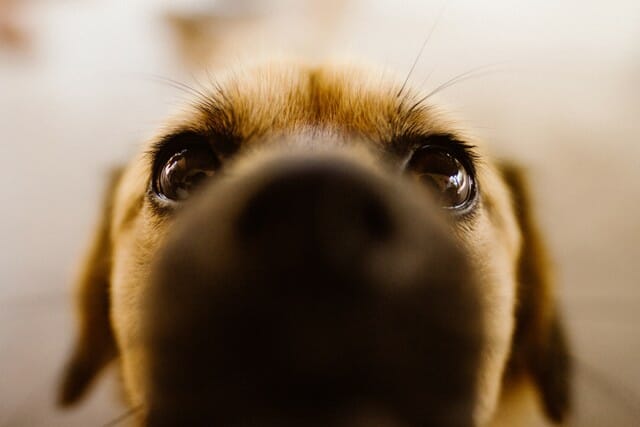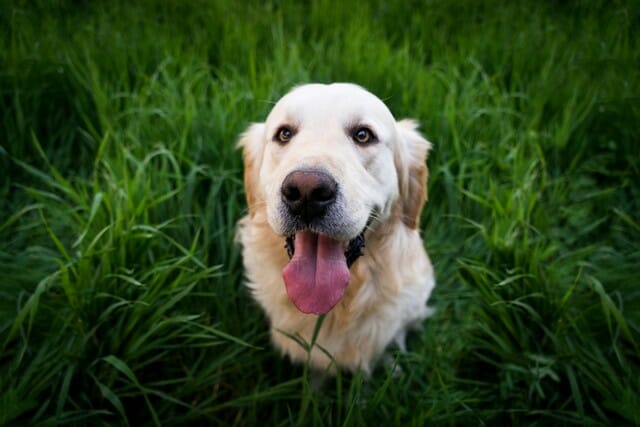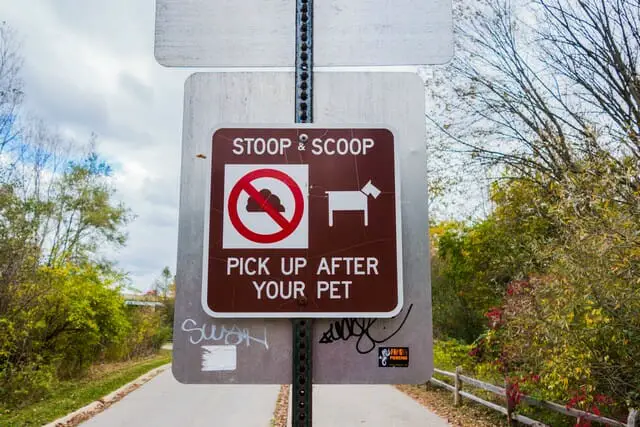Last Updated on November 30, 2021 by Grow with Bovees

Poop is not a subject people like to talk about. Whether it is from an animal or a human, it’s stinky, looks disgusting, and is a thoroughly repulsive subject of conversation. But there are so many good things about it that avoiding the discussion is like taking a dump on an easily accessible bounty of natural resources.
If you have a small garden with a compost pit, you are likely to be looking for materials that go into it. When it comes to dog waste, you don’t think of it as anything more than just a discardable element of your life. And typically, it ends up in a plastic bag that finds its way to a landfill.
But since landfills lack oxygen, the decomposition of dog waste only creates more methane gas. This just adds to the amount of waste we already produce and discard. Instead, here’s what you can do with it. That’s right. Dog manure and other pet waste have practical applications in the compost bins.
It’s Actually a Nutrient!
Instead of treating it like a pollutant, look at your dog excreta as a nutrient for your garden. Long story short, dog waste can be used in compost with a few precautions. It can be mixed with organic waste as it can be a food source for the microbes that decompose the materials in your compost heap. But a lot of websites and organic farming guides advise against this. They are not wrong. Here’s why.
What Not to Do When Using Doggy Doo
Just because we said you can use dog waste in your compost doesn’t mean you scour your neighborhood for dog waste. The problem with approaching this in a simplistic manner is that matter from unknown dogs can be harmful.
- If you happen to pick up waste from a dog that has diseases, you put your compost pile at the risk of contamination.
- Make sure the composting conditions are ideal. That means you need enough carbon in the bin so that the nitrogen-rich dog waste is broken down properly. Temperature is a big part of the above-mentioned ideal composting conditions. To maintain the heat in the bin, you can cover it with a black sheet of plastic.
- Even when you do use dog waste as manure, make sure you only use it on flower beds and don’t put it on plants that grow vegetables for your consumption.
It takes about four to six weeks for the process to complete and the mix to be ready to mingle with other organic material. So, be sure to return on a weekly basis to check the temperature and also mix the pile.

How to Use Dog Waste Safely in a Compost Bin
When we talk about ideal composting conditions, we mentioned temperature. If you are adding dog poop to the bin, you make sure the temperature in the compost pit is constantly high.
The recommended range is 120 to 140 degrees Fahrenheit. This makes sure that the bacteria that were in the dog’s gut and used to low temperatures are killed when exposed to the bin’s high temperatures.
Here’s a step-by-step process to help you do it right.
Step 1: Pick a sunny day and a dry site for the bin. Make sure there are no pregnant or nursing dogs nearby.
Step 2: For every two parts of nitrogen-rich dog waste, add one part of carbon-rich sawdust. Mix the pile after adding each part.
Step 3: Add small amounts of water to the mix so that the pile is moist.
Step 4: Add the ingredients till the compost is 2-3 feet deep. Stop adding materials once the bin is full.
Step 5: Cover the mixture to retain the heat and let the microbes get to work.
Step 6: Get a compost thermometer and check the internal temperature every day. You should notice a drop in about two weeks.
Step 7: Turn the pile from the outside so that all the materials in the pile are exposed to a high temperature that will kill the pathogens. Turn the pile whenever you notice a temperature drop.
Step 8: When the temperature does not go up anymore, take it to mean that the composting is complete.
Step 9: Cure the compost for several months to a year before using it so that the pH levels are stabilized.
What Makes Dog Waste Such a Risk?
The reason why dog waste is not a popular choice for composting is the uncertainty of the pathogen breakdown. Even after taking all the necessary precautions, it is tough to ascertain whether all the harmful bacteria have been killed. There is no mechanism to certifiably say it has been done. That is why, as mentioned before, it is used as manure on flowering and decorative plants instead of fruits and vegetables meant for human consumption.

Benefits of Composting Dog Waste
- By composting dog waste, you avoid polluting the environment. Left unchecked, it often ends up in groundwater, streams or landfills and creates methane gas.
- Composting destroys pathogens and gives the soil an amendment.
- On-site composting of dog waste means it doesn’t have to be taken to a disposal facility which saves time, money and energy.
- When done right, this produces a good additive to the soil and improves its fertility.
Point Being
To answer the question, dog waste can be used in compost because it is rich in nitrogen. But you need to take a few precautions to make sure that harmful pathogens are killed. You cannot use the poop of any unknown dog because it might contain disease-carrying pathogens if the dog has a sickness. Be sure that during the composting process, the bin consistently maintains a high temperature so that all the bacteria are killed.
Experts don’t recommend using dog waste for the compost because there is almost no way to ascertain that all the bacteria have been killed. But if you have experience with composting and are confident of maintaining high temperatures in the bin, you can give it a shot by getting a dog waste compost bin or build one yourself.
